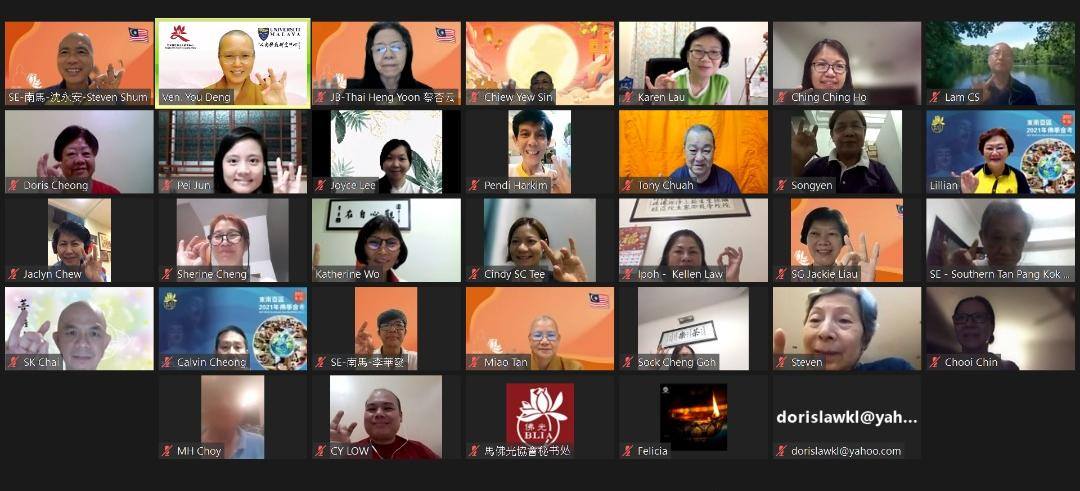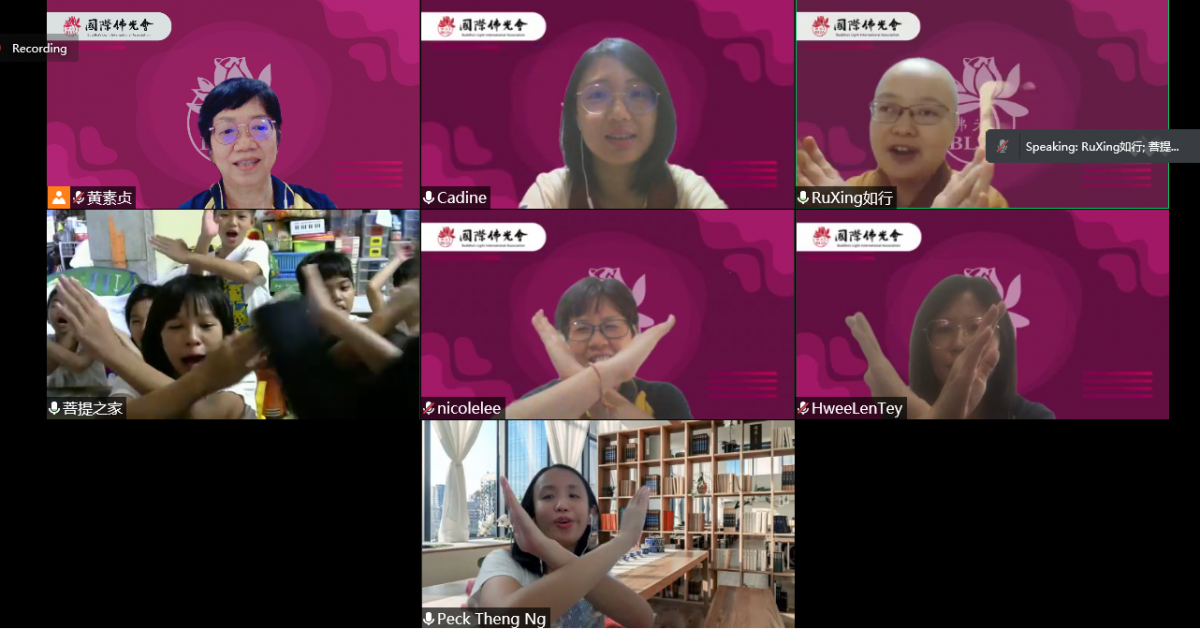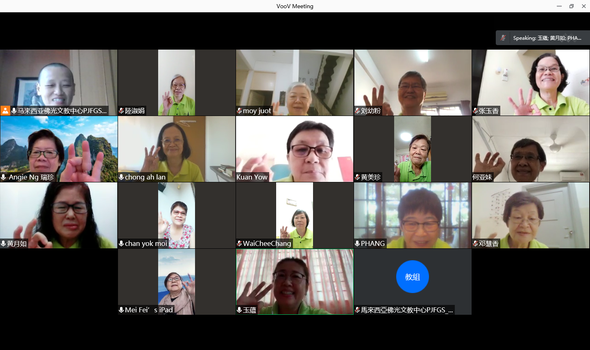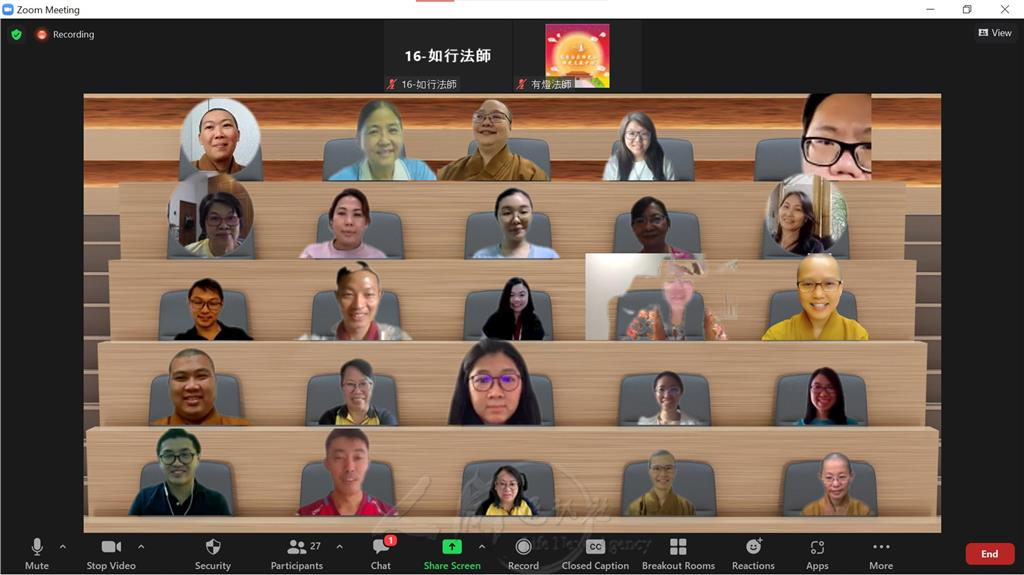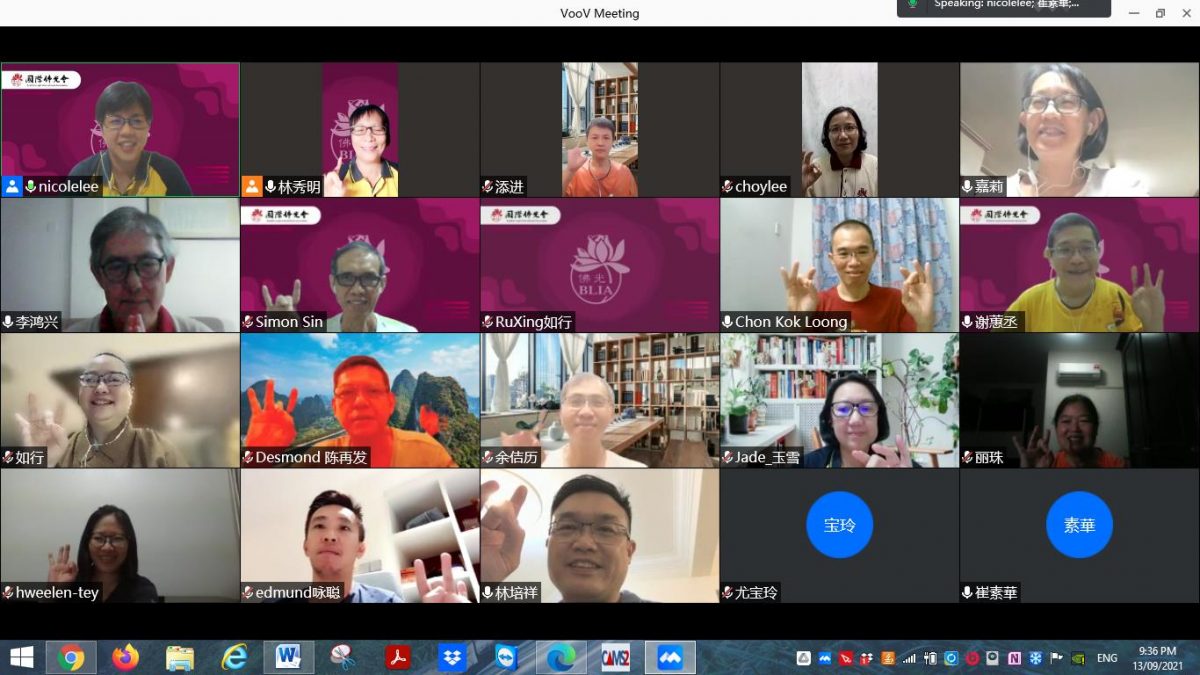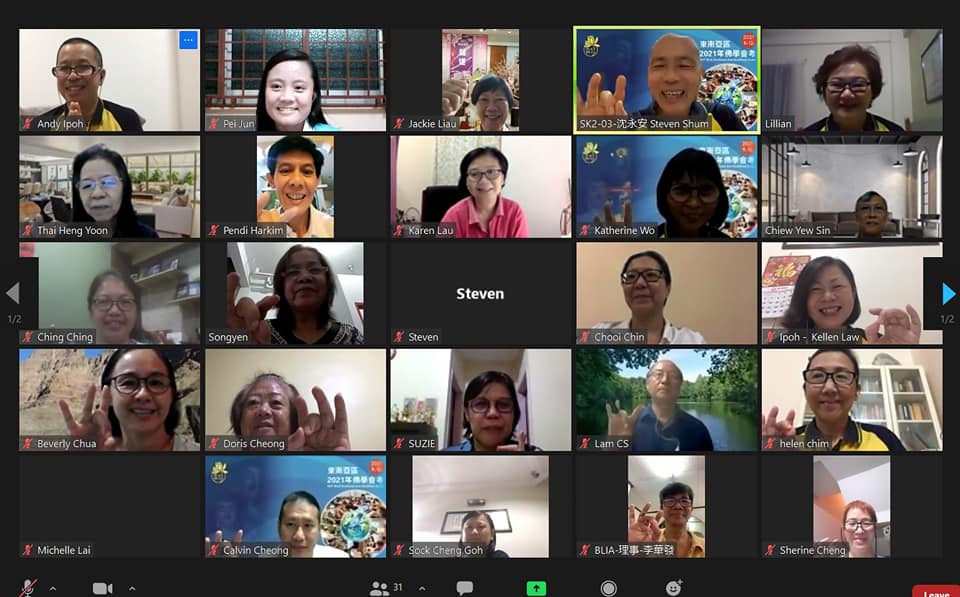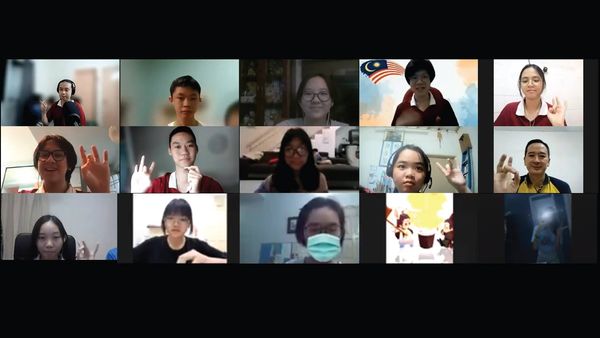27/09/21 – Joyful Dharma Reading Club Report
Topic: Buddha-Dharma: Pure & Simple — Four Reliances
A total of 33 participants joined this session facilitated by Venerable You Deng.
In this passage, Venerable Master Hsing Yun advised that as true Buddhists, we should not abide in the Six Sense Objects nor the Five Desires as these would cloud our intrinsic nature. Instead, we should follow the guidelines taught by the Buddha, i.e. by abiding in the Four Reliances, which are:
- Rely on the Dharma, not on individual teachers,
- Rely on wisdom, not on consciousness,
- Rely on meaning, not on the words,
- Rely on ultimate truth, not on relative truth.
Venerable You Deng lead the class through an interesting discussion and shared some insights how to approach the Dharma based on these four reliances.
Firstly, the Buddha teaches us to rely in the Dharma to understand the Truth instead of relying on individual teachers. Venerable You Deng explained that some teachers may learn the wrong concepts and mis-apply their learnings. Therefore, by abiding in the Dharma, we will not follow the wrong teachings and make mistakes. The Buddha has always emphasised that we should rely on ourself, rely on the Dharma and rely on nothing else, to attain proper understanding of the truth.
Secondly, the Buddha taught us that wisdom already lies within us and therefore, when we study the Dharma, we must be aware of this inherent wisdom and not rely on the consciousness, namely the six sense organs — eyes, ears, nose, tongue, body and mind, as well as the manas consciousness and alaya consciousness. Seeing the truth is wisdom; knowing about the truth is knowledge. However, knowledge alone cannot help us break our delusions. But by relying on wisdom, we see the true reflection of our Buddha nature.
As for relying on meaning and not on words, Venerable You Deng pointed out that although the Dharma is prescribed by words but, we we should apply our wisdom to understand the true meaning of the Dharma. Language is just a tool and although different Schools use different languages and dialects, the meaning of the Dharma is still the same—there is only one truth. By following the meaning, we will remain free from the boundaries of languages.
Lastly, by relying on ultimate truth instead of relative truth, we will devoid from understanding the shallow meaning of the Dharma. The Buddha has always adopted expedient means to spark interest in teaching the Dharma to benefit sentient beings. Venerable You Deng defined ultimate truth as ‘definitive meaning’ and relative truth as ‘provisional meaning’. In this sense, expedient means are relative truth, which aims to bring joy, liberation and transcendance to life, but we should aim to follow the Buddha’s footsteps and elevate our spirit and magnanimity to that of the universe. ThIs is the ultimate truth that reveal the true path to liberation.
As a reflection and take back from this topic, some readers shared their thoughts and views to inspire each other towards self-awakening. In a nutshell, learning Buddhism is about understanding the profound meaning of the Buddha-Dharma to provide us a clear direction of practicing Buddhism in our daily life. Hence, we should apply the Four Reliances as basic guidelines for us to practice and develop our faith. With that, we concluded the session with “A Prayer Before Retiring for the Day”, followed by Transference of Merit.

